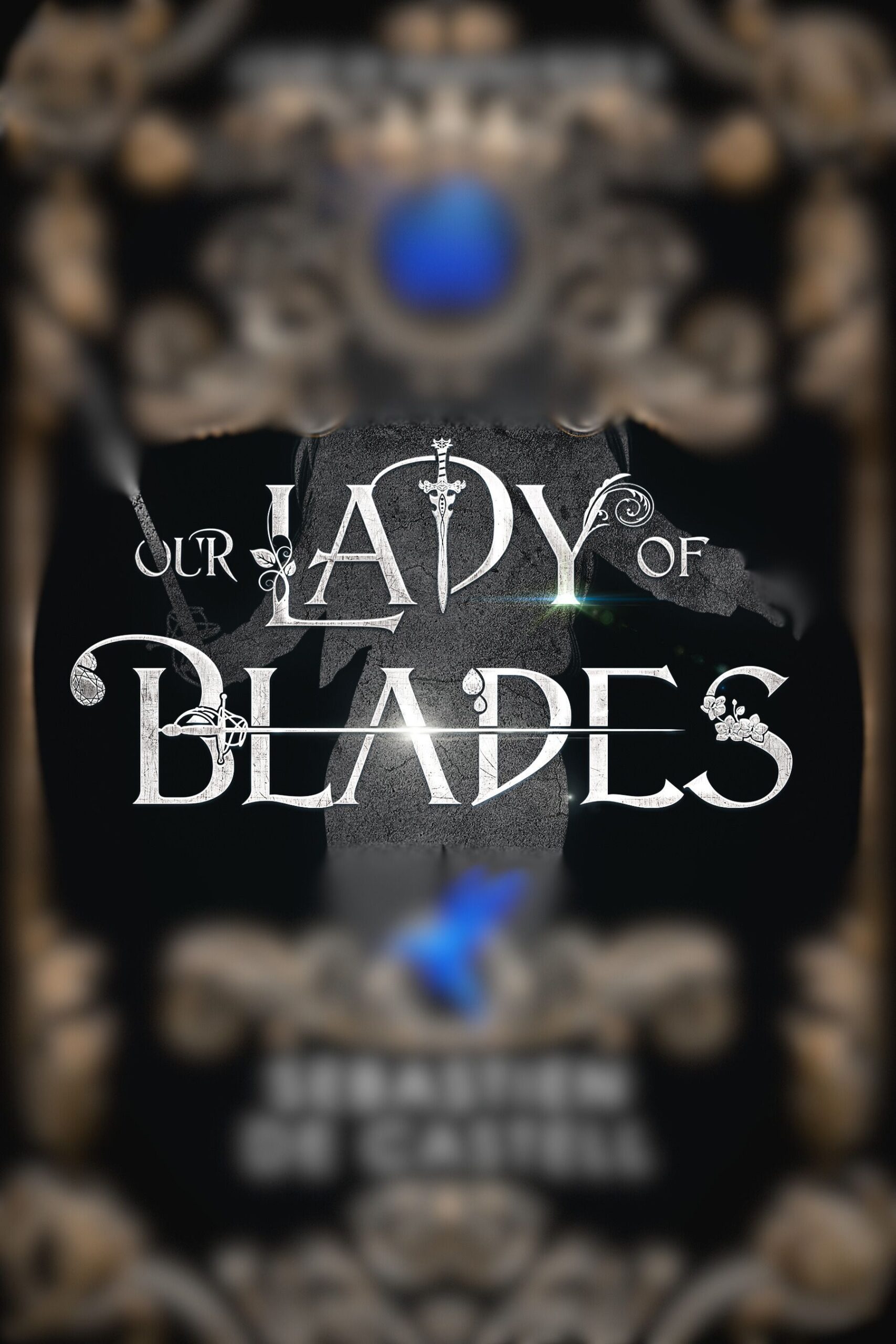
Our Lady of Blades is, without doubt, the most intricate book I’ve ever written. In fact, it’s taken more passes than I can count to pull off the endless narrative magic tricks that make the story so compelling for me to write.
Here’s the synopsis:
Rijou’s notorious Court of Blades is as corrupt as it is violent. Here, justice is bought and sold as lives are destroyed with impunity – all to serve the duchy’s Ascendant Houses as they consolidate power by orchestrating the entirely legal murders of those who oppose them.
Into this world of corruption a mysterious duellist arrives, daring to foil the schemes of her enemies and setting the duchy’s elites against each other. They call her Lady Consequence, but she once had a different name – years ago before her family was slaughtered and she was consigned to the prison mine known as the House of Tears. Now she has returned with the plan and the means to rescue her brother and restore their house.
But the secret forces who engineered the deaths of her family have plans of their own for this beleaguered duchy, and if Consequence hopes to defeat them, she’ll first have to prove her wits as sharp as her rapier, and truly earn the title of Our Lady of Blades.


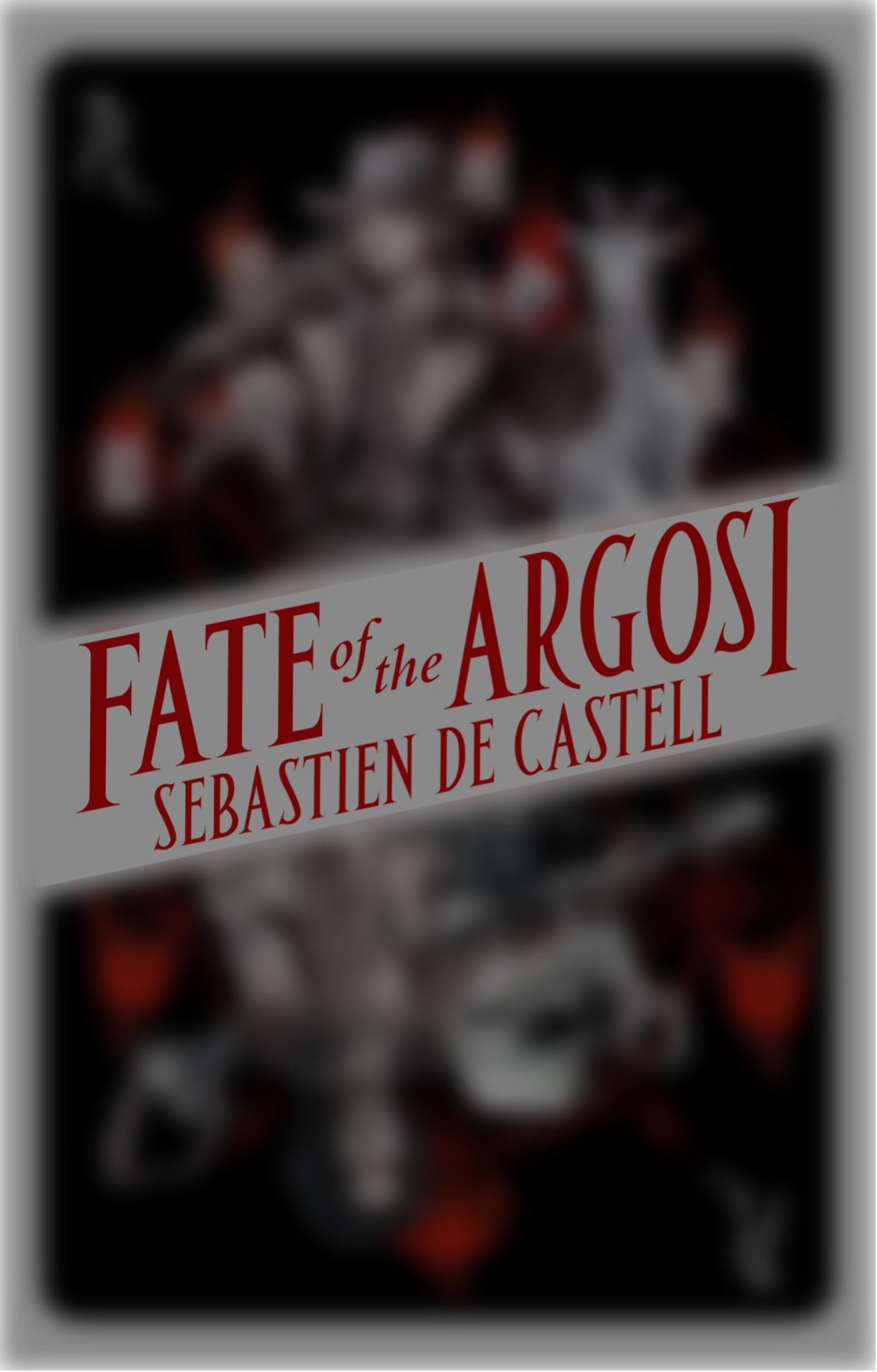
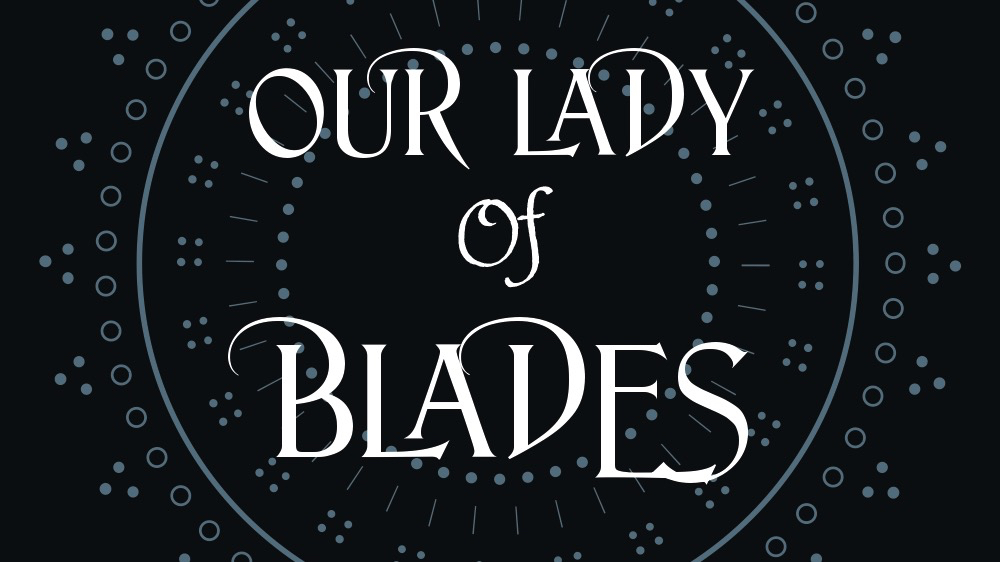
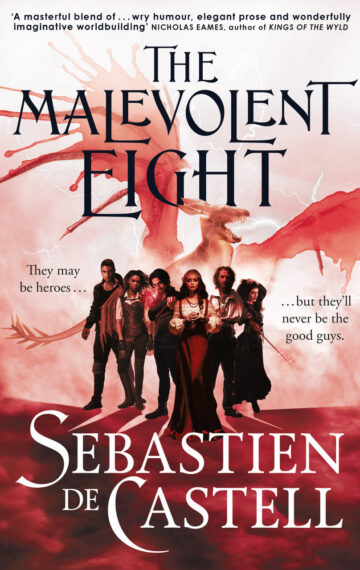
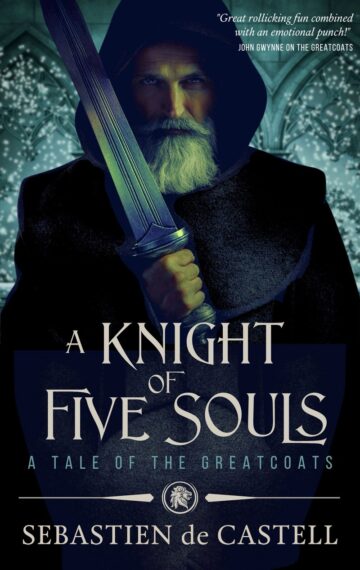
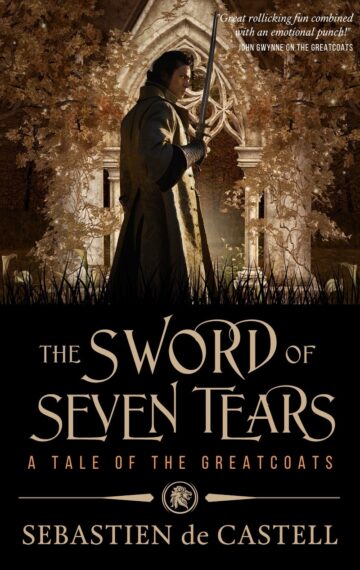

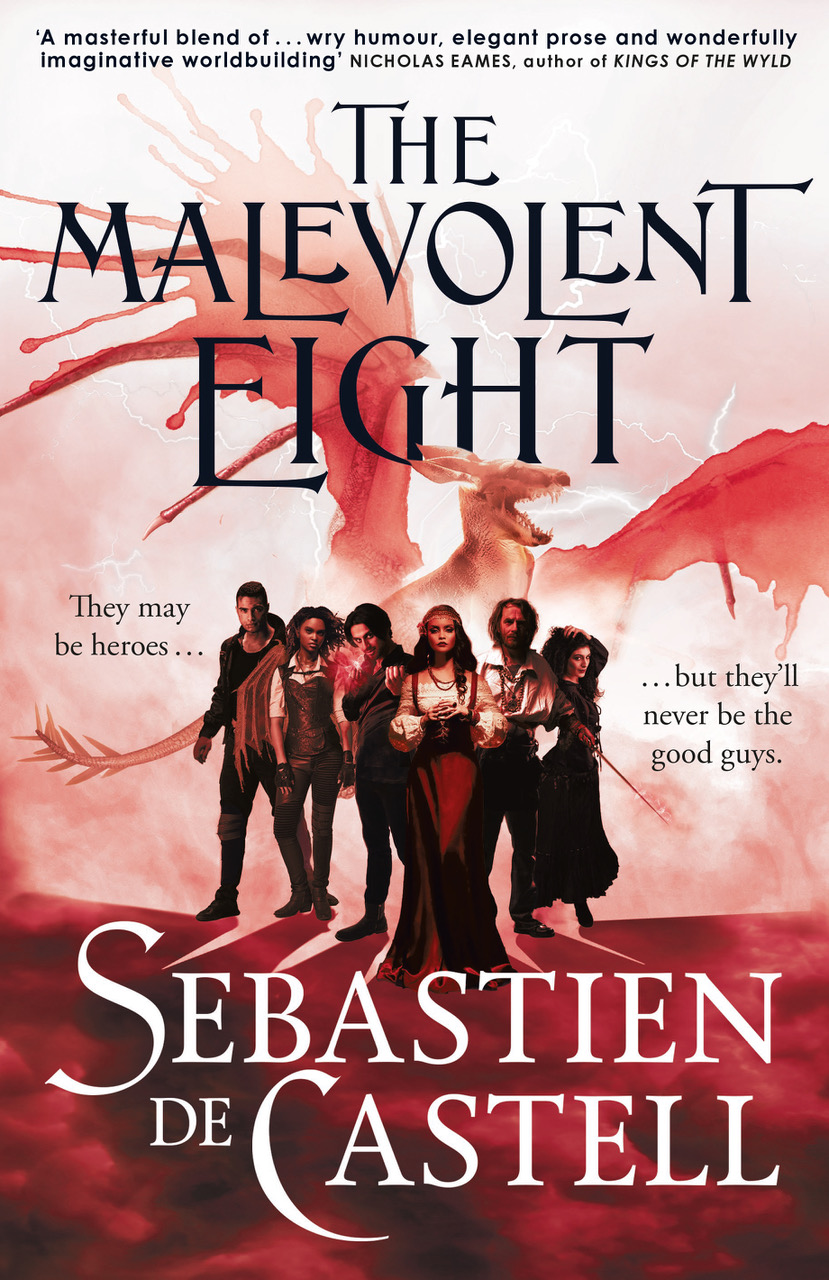
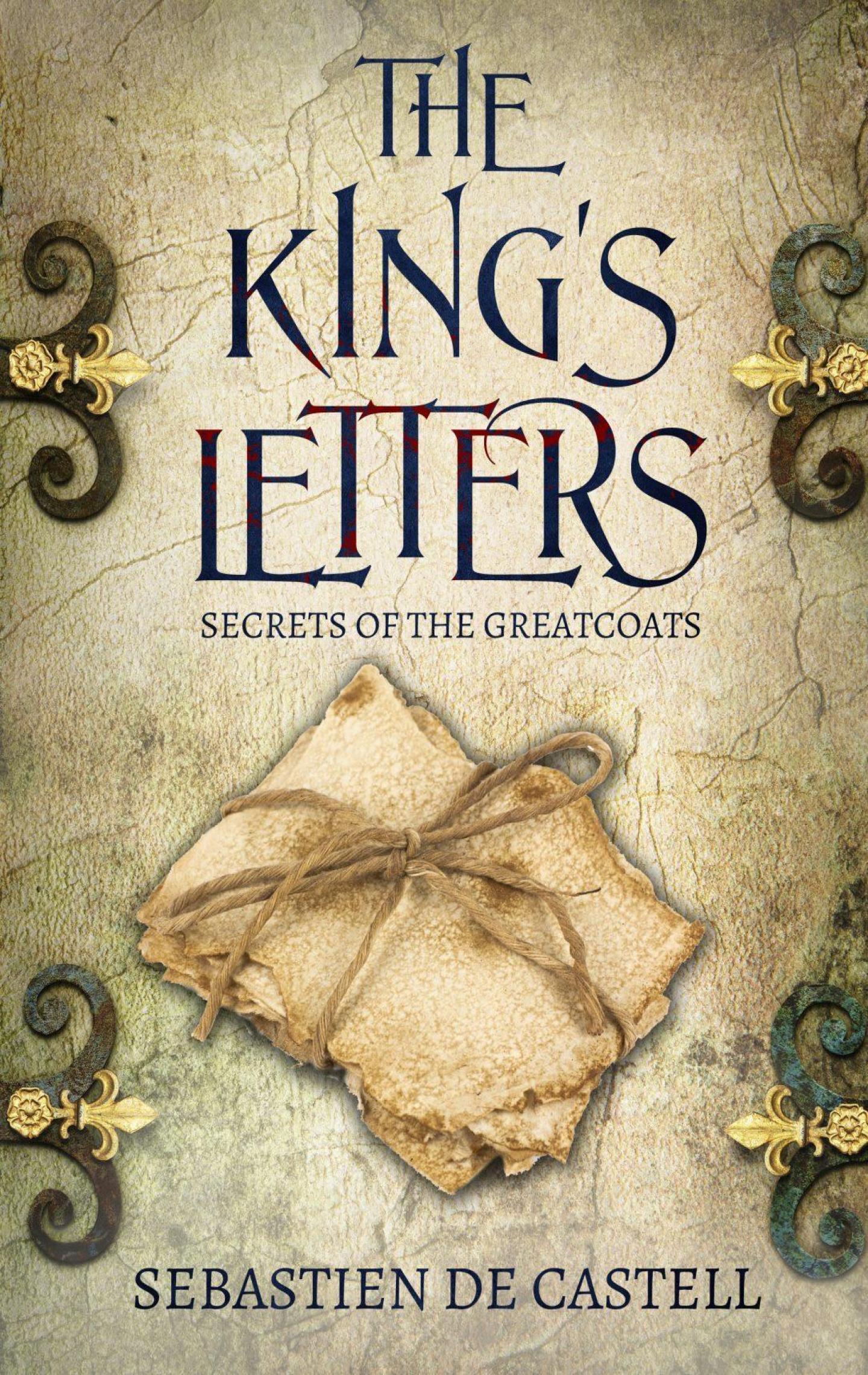
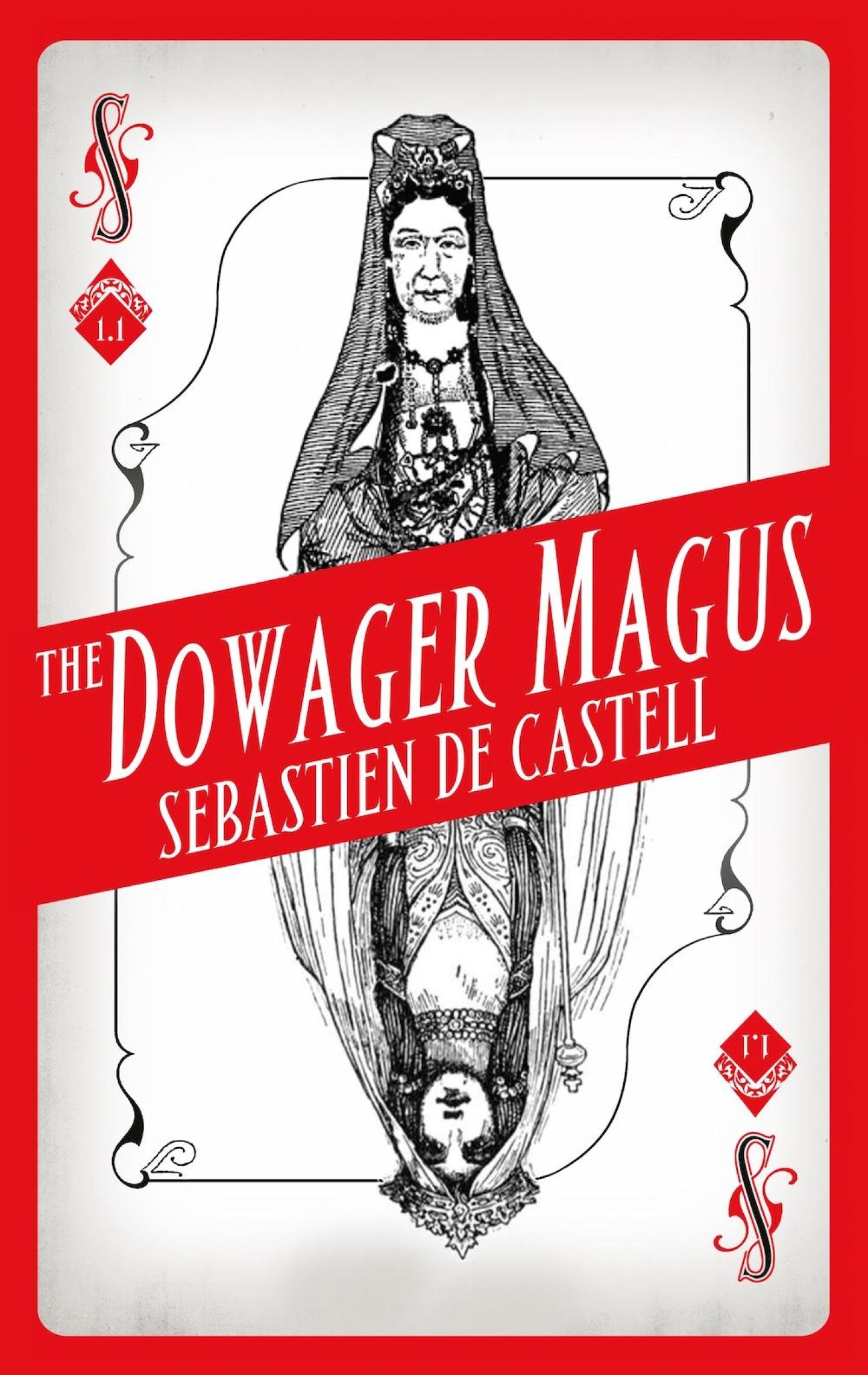
 Les vieux maîtres de sort aiment raconter que la magie a un goût. Les sorts de braise ressemblent à une épice qui vous brûle le bout de la langue. La magie du souf e est subtile, presque rafraîchissante, un peu comme si vous teniez une feuille de menthe entre vos lèvres. Le sable, la soie, le sang, le fer… cha- cune de ces magies a son parfum. Un véritable adepte, autre- ment dit un mage capable de jeter un sort même à l’extérieur d’une oasis, les connaît tous.
Les vieux maîtres de sort aiment raconter que la magie a un goût. Les sorts de braise ressemblent à une épice qui vous brûle le bout de la langue. La magie du souf e est subtile, presque rafraîchissante, un peu comme si vous teniez une feuille de menthe entre vos lèvres. Le sable, la soie, le sang, le fer… cha- cune de ces magies a son parfum. Un véritable adepte, autre- ment dit un mage capable de jeter un sort même à l’extérieur d’une oasis, les connaît tous. 'I totally saw this coming,’ Reichis growled, leaping onto my shoulder as lightning scorched the sand barely ten feet from us. The squirrel cat’s claws pierced my sweat-soaked shirt and dug into my skin.
'I totally saw this coming,’ Reichis growled, leaping onto my shoulder as lightning scorched the sand barely ten feet from us. The squirrel cat’s claws pierced my sweat-soaked shirt and dug into my skin. The way of the Argosi is the way of water. Water never seeks to block another’s path, nor does it permit impediments to its own. It moves freely, slipping past those who would capture it, taking nothing that belongs to others. To forget this is to stray from the path, for despite the rumours one sometimes hears, an Argosi never, ever steals.
The way of the Argosi is the way of water. Water never seeks to block another’s path, nor does it permit impediments to its own. It moves freely, slipping past those who would capture it, taking nothing that belongs to others. To forget this is to stray from the path, for despite the rumours one sometimes hears, an Argosi never, ever steals.